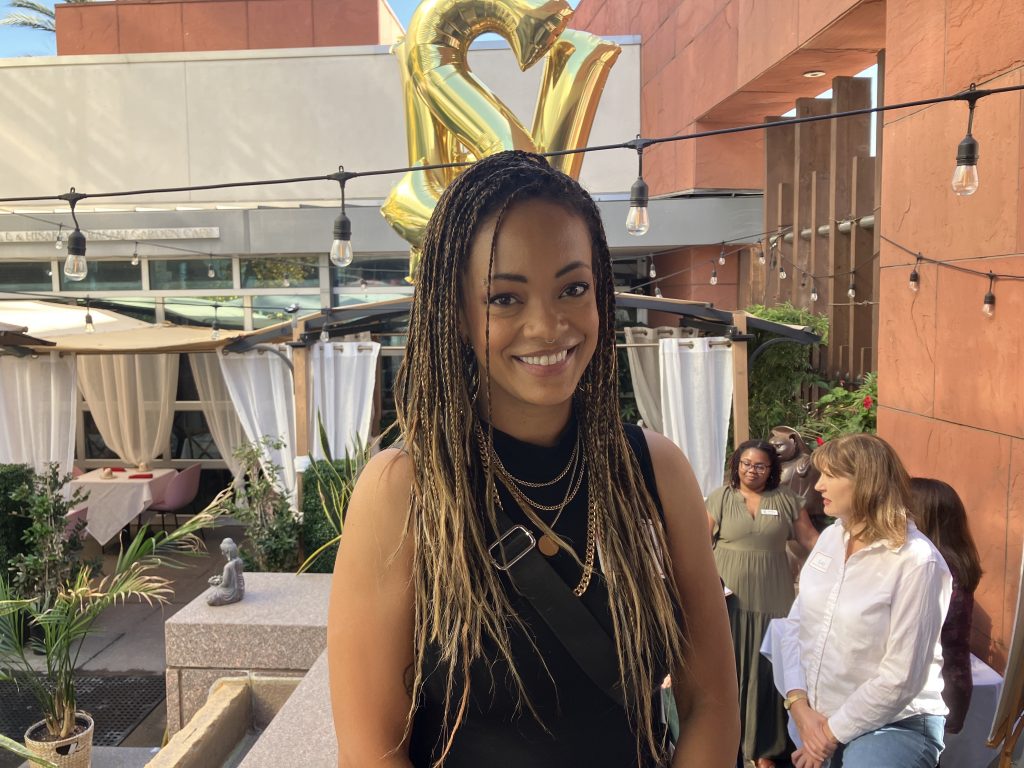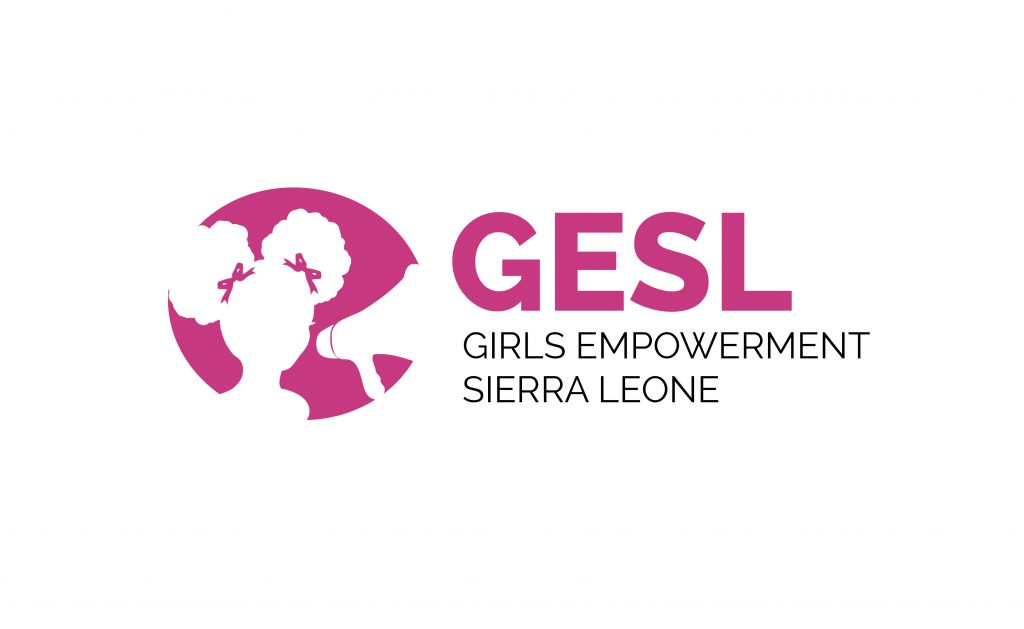
This past July when the Emmy nominations were announced, Stephanie Filo made history with three editing nominations for three different series in the same year. On top of being a celebrated editor, she is a prolific activist who’s used her remarkable skills for worthy causes like the End Ebola Now Campaign and Girls Empowerment Sierra Leone. As a child, she lived in Sierra Leone in West Africa, and though she moved to the United States many years ago, she has a strong connection to her homeland.
She lived in Colorado before ultimately moving to Los Angeles and forged a career thanks to hard work and perseverance. She broke through the barrier of the editing world, which as a woman of color, was very hard to gain admittance to a workforce that was mostly white and male. Filo’s journey, both as an artist and activist, simply inspires. Below the Line was able to catch up with her in the Q&A.
Below the Line: Please tell us how this organization Girls Empowerment Sierra Leone was started.
Stephanie Filo: Girls Empowerment Sierra Leone was started in 2012. There were no after-school programs there at the time, so Moiyattu Banya-Keister and Liesel Renner decided to start a program for girls 11-17 that would focus on their leadership skills and building a sisterhood for girls their age. Moiyattu and Liesel recruited a couple of us as founding board members to help develop the program, and that first year we started small with one day of workshops with 9 girls and now 10 years later, we’re a year-round organization. We have staff within the country that works with them on workshops and community engagement and advocacy year round, and we’ve worked with over 400 girls at this point. So we exponentially grew.
BTL: And how did the organization End Ebola Now grow?
Filo: In 2014, there was an Ebola outbreak within several of the West African countries. Sierra Leone was hit hard, but there was a lot of misinformation about what the virus is and how it spreads. The UN and other organizations distributed flyers but there was a high illiteracy rate in rural areas and there are 26 different languages spoken there, so people had a hard time reading or understanding the flyers. And so myself, Nzinga Blake, and a few other Sierra Leonean diaspora and activists in LA within the TV and film industry were like, let’s just start making PSAs within different languages, as many as we can and just try to get the information out that way.
A couple of years in, we also created a dance challenge that started to go viral after Kevin Bacon and other celebrities started taking part in it. The challenge was that either you dance or you donate to Emergency USA (which was the only remaining fully-functioning hospital in Sierra Leone at that time). The idea was that realistically, most people aren’t going to want to dance but they will donate to a hospital, and so the challenge was able to pick up steam in that way as well.
BTL: How does your work with these organizations ties into your editing career?
Filo: I’ve never figured out the balance fully because I’ll be working on a TV show or film for 12 plus hours, and then I would go home and work on this stuff at night. I think through doing all that, I did gain kind of a sense of different ways of storytelling. It almost helps in the TV and film side for me as well, because it’s just different ways to approach things. I can see how it ties into different avenues, which I think is super helpful.
BTL: What originally led to your career in editing?
Filo: I was originally a dancer, so when I came out here I was still dancing, still auditioning for things, but I didn’t know anybody and I knew I wanted to get into TV and film in general. I had done editing at home with my home movie camera and stuff back in the day and didn’t realize that that was a career that I could follow.
And so, I was working during the day at Smashbox Studios. One of the offices behind the studio happened to be a production company cutting a French documentary. I just relentlessly bugged them and was just like, “Hi, can I bring you coffee? Can I do this or this?” And one day they said they needed a night assistant editor, and I was like, “Sure, please consider me for this. I would love to do whatever you need.” And so, I got that job.
I was working during the day, and then at night I would just walk to the back and do the night assistant editing job. I just kind of fell in love with the process and I was just like, it’s kind of similar to what I used to do back in the day with my home movies and splicing tapes together and stuff.
BTL: Your first TV credit was the Mel Brooks and Carl Reiner doc, Excavating the 2000-Year-Old Man Documentary, right?
Filo: I was working at a post house and I went from Assistant to Online Editing to Picture Editing. One day there was a documentary coming in about Mel Brooks and Carl Reiner, and I was like, “Please, I would love to cut this.” And they put me on that. So that was my first TV editing credit.
I had edited other stuff, but that was my first airing credit, which was cool. I did get notes from Mel Brooks, which was kind of a surreal thing and it’s also kind of full circle into working on History of the World Part 2. It was a fun, serendipitous return to Mel Brooks’s world.
BTL: How was that experience?
Filo: I think all of us (Writers, Producers, Editors) were such Mel Brooks nerds, we all just loved his catalog of work, and so it was just such a fun thing every day to share each other’s work as we’re working on dailies that were coming in. We were partially remote, partially hybrid. So we would check in over Zoom or Evercast to kind of be like, “Hey, can you check this out? And is there anything you would do differently or things that you think would make it funnier?”
Our whole post team would kind of do that every day, which was a blast. And we’re like, “What would make this feel more Mel?” Just finding the voice of it, a Mel Brooks movie from 40 years ago. How do you make it fresh, but then at the same time keep it in that vein? It was a really fun process just working with everyone and figuring out what it should be.
BTL: Tell us a little bit about A Black Lady Sketch Show.
Filo: One day, this was pre-COVID, it was back in 2019, that I got a call that Robin Thede was looking for an editor on the second season of A Black Lady Sketch Show. And I was obsessed with the first season, so I was like, absolutely, “What can I do? Do you want a kidney? Give me this job, please.” We hit it off. I was about to fly to Sierra Leone, and as I was getting on the plane, I got the call that I got the job and I got the offer to work on season two of A Black Lady Sketch Show.
BTL: What about Dahmer?
Filo: I was initially scared to take on a project like this because I just didn’t want it to feel like we’re being sympathetic to Jeff at all. Once I read the script, I was immediately on board because I just saw it was a different way that they were trying to tell this, and I thought it would be important to have people who are passionate about telling it the right way and I knew that could be me. I pushed to get on that, and I’m really glad that I did. I’m proud of how the show came out. It was heavy. I think I immediately went to the next season of A Black Lady Sketch show after that.
BTL: What was it like when you first got nominated for your work a few years ago?
Filo: I guess just shocking. I never pictured myself in this kind of position. I was nominated and won a News and Doc Emmy. That was the most kind of surreal experience, because it was for a social impact doc that Nzinga Blake and I had also worked on. I remember one day randomly, she called me screaming, and I was like, “Are you okay? What’s happening?” And she said, “We got nominated for two News Emmys.”
The one that we won for was called Separated, and it was about a family whose dad had been deported nine years ago to Mexico, and they were trying to get him back. They lived in Ohio. I have a video of us winning that one. And it was right as Covid hit, and so we were on the couch with our family screaming. That in itself was the weirdest moment, I think.
BTL: So now you have been nominated and won Emmys, which leads me to my next question, three nominations, which is record-breaking. No one’s ever done that. What was that like?
Filo: I can’t fully describe what the feeling was that day. I think I just was in disbelief maybe because again, I never would’ve expected to be in this position to be nominated for one Emmy ever, let alone three different series at the same time. I don’t think I’ve fully processed it still.
BTL: What do you have coming out next?
Filo: I have a feature that I cut called We Grown Now that premiered at TIFF, and it will have a theatrical release early spring of next year.
For more information on End Ebola Now Campaign and Girl Empowerment Sierra Lone, click the links.






